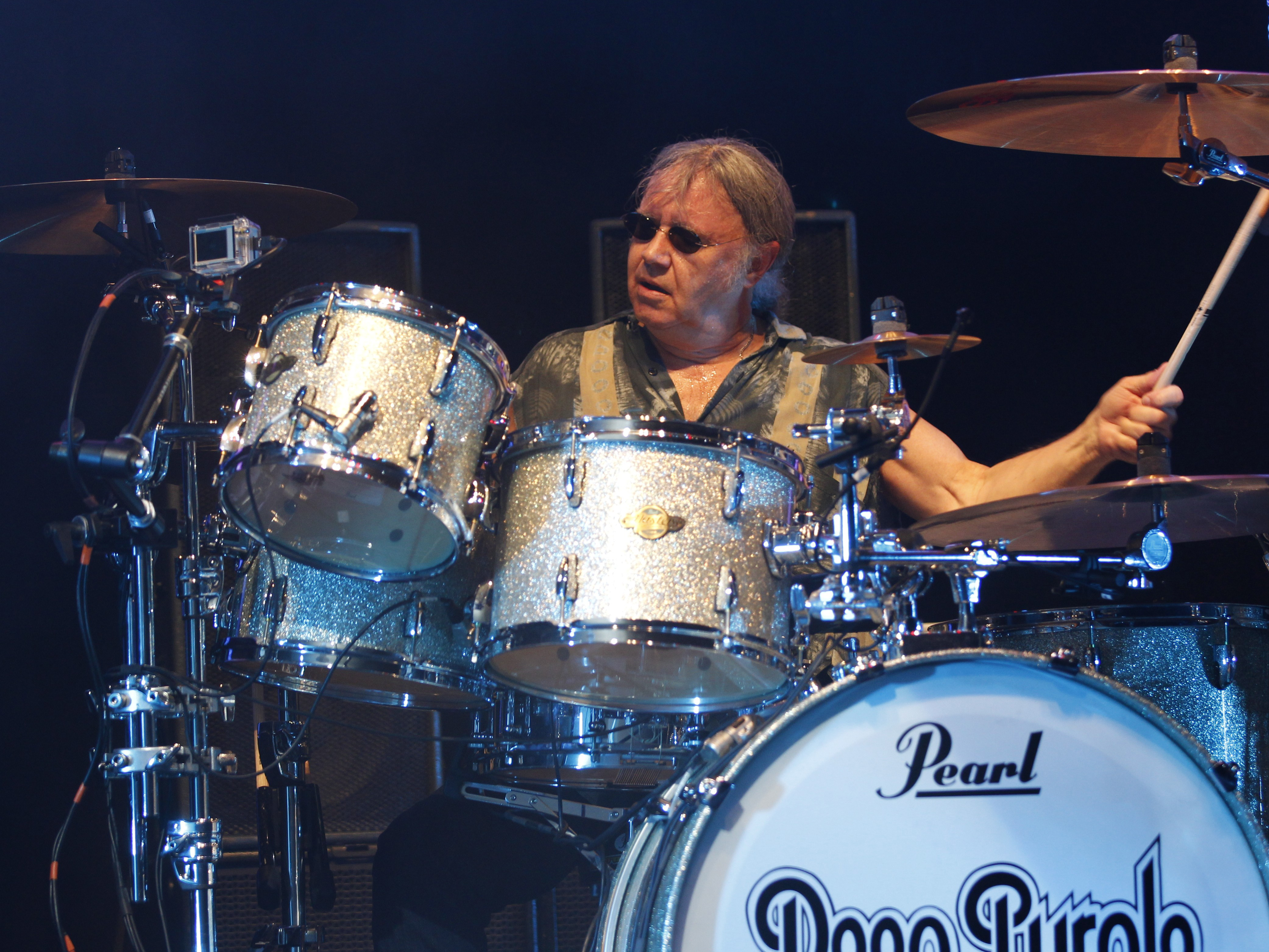
Ian Paice
The late ’60s saw Deep Purple, alongside Black Sabbath and Led Zeppelin, architect a monumental shift in the whole concept of rock, swiftly moving from blues to heavy rock and heavy metal, a style dominated by unforgettable riffs. And the most memorable guitar riff of all was the centrepiece of one of their defininf albums Machine Head, ‘Smoke On The Water’.
The classic line-up of Purple – vocalist Ian Gillan, guitarist Ritchie Blackmore, keyboardist Jon Lord, bassist Roger Glover and drummer Ian Paice – combined heavy rock with elements of classical, prog and vintage rock’n’roll swagger. The band is still going strong today, with a 2013 album, Now What?! Paice has been the only drummer throughout, known for his rapid snare drum fusillades, powerful left-leading bass drum foot and classic big band-style triplet fills.
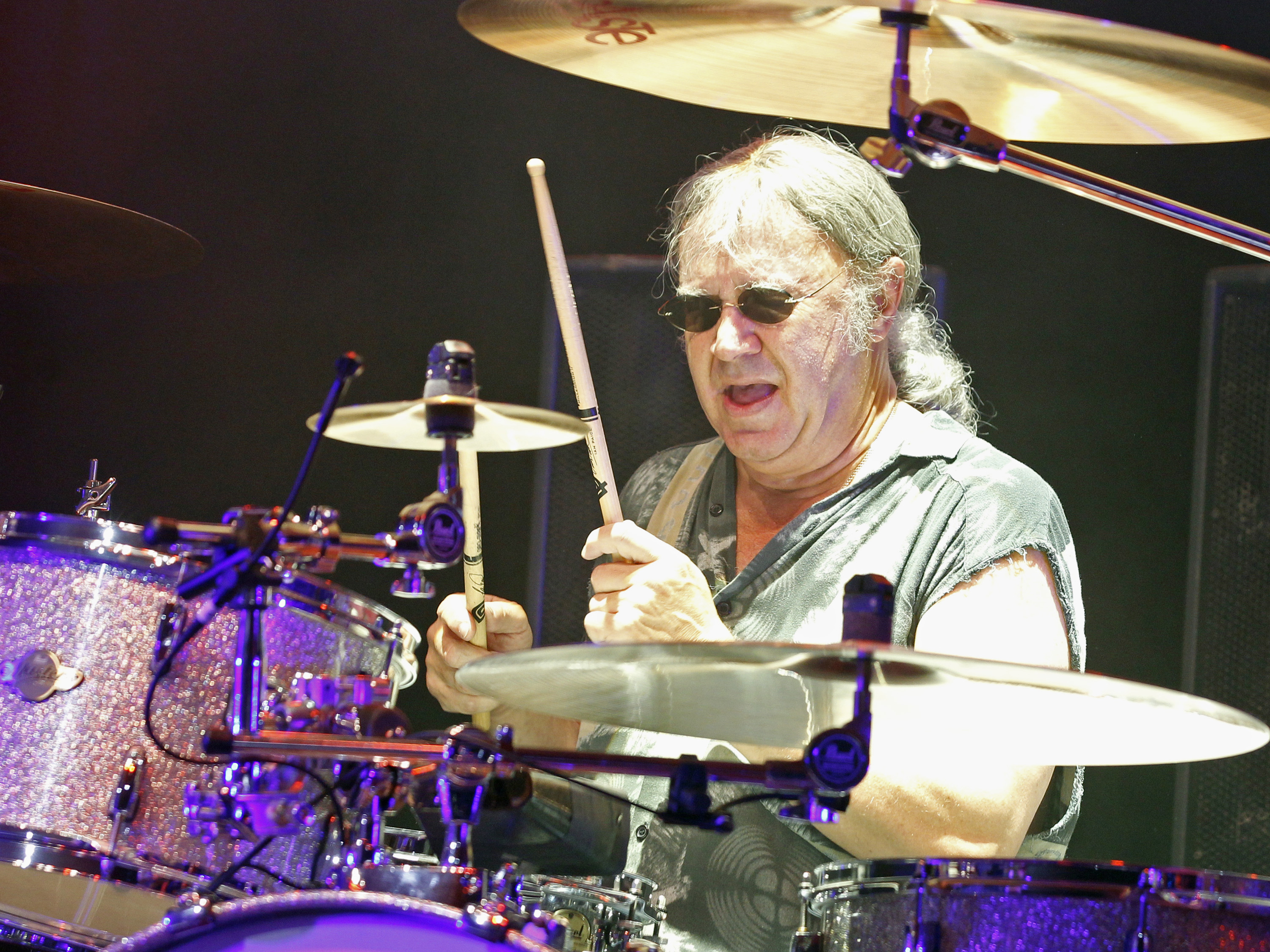
Ian on… seeing smoke on the water
“The first track we laid down – and the last to be finished – was ‘Smoke On The Water’, before we knew what it was going to be called. That was done in the ballroom of the Grand Hotel in Montreux, right by the lake. There was no sound-proofing and we were recording at night, a hell of a racket! We just got the track down before the cops broke in, we had roadies holding the door shut with them pounding on the door!
“We were to record in the Casino which was closing for the winter. The last concert [4 December] was Frank Zappa and we went along to see the show and some guy took a flare gun into a place that was decked out like a Polynesian island with artificial palm trees and coconuts! He decided to shoot it into the ceiling which went up like a perfectly-built bonfire. Zappa was magnificent – he said nobody panic and then jumped through the window behind him! Within minutes it was an inferno, flames hundreds of feet in the air. Back at the hotel Roger [Glover] and Ian [Gillan] saw this pall of smoke drifting across Lake Geneva and I think it was Roger who said “smoke on the water”. Ian wrote it down and by the time it was finished it was the last track.”
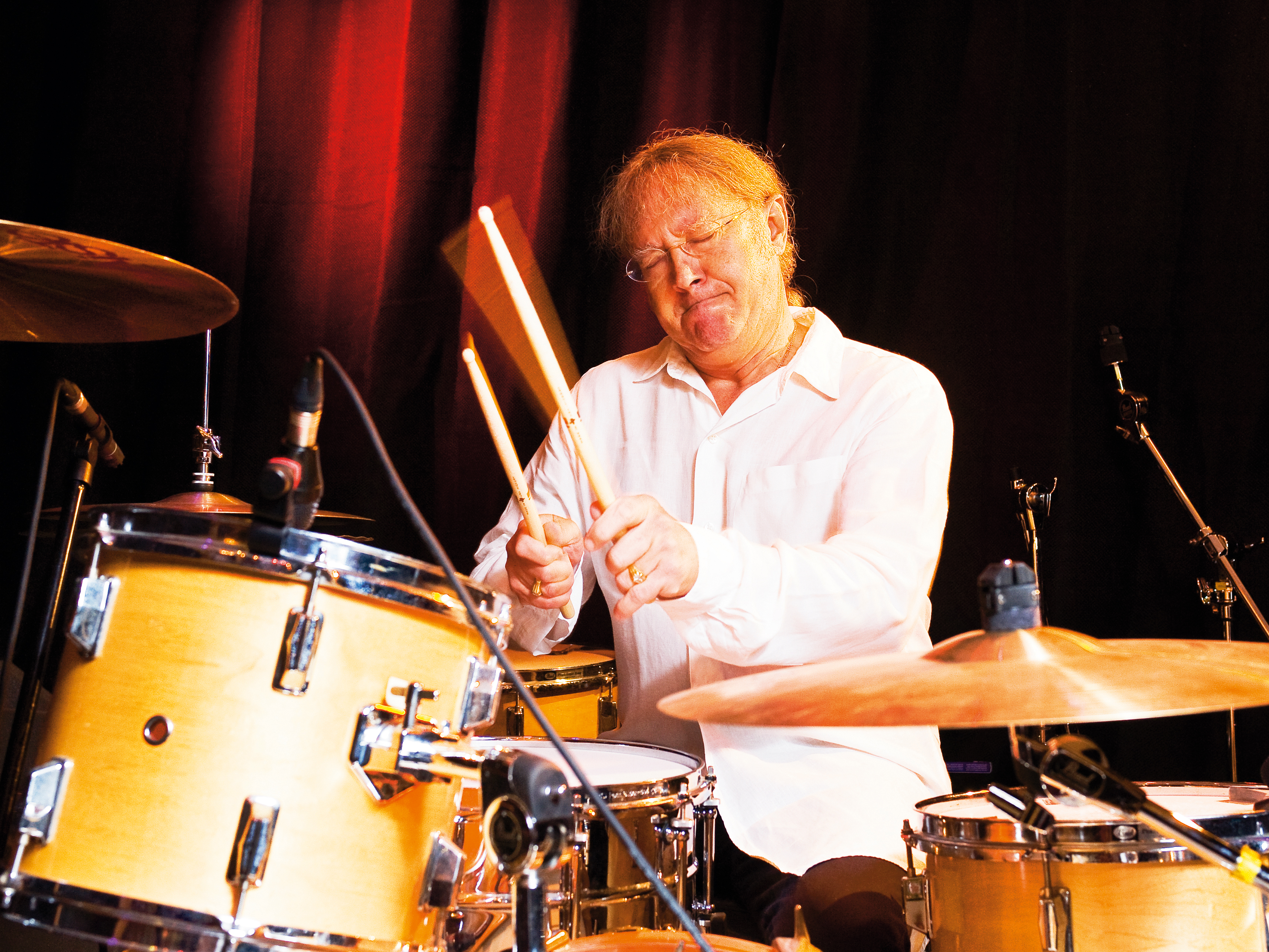
Ian on… his influences
“Vanilla Fudge switched us all on. They were the first who said it doesn’t have to be a three-minute single. We were all influenced by them. [Drummer] Carmine Appice not only had the sound, he had invention, swing and push and great musical guile. I took a lot from him, his syncopation and anticipation were just wonderful.
"There are lots of mixtures of different music and big intros on the first three Purple albums and it was all trying to do what the Fudge did. ‘Hush’ was a one-off, a big US hit and the first album did well because of it. ‘Hush’ is still a great track because it’s a hooky pop tune with basically a great samba rhythm. The follow-up, ‘Kentucky Woman’, was not so big. And you know in the band you can’t go further. The chemistry was never complete until Roger [Glover] and Ian [Gillan] joined and the true direction of the band came through. When we got the classic five together, what it became was the only way to go and it happened to be the right thing for us and for the public at the time.”
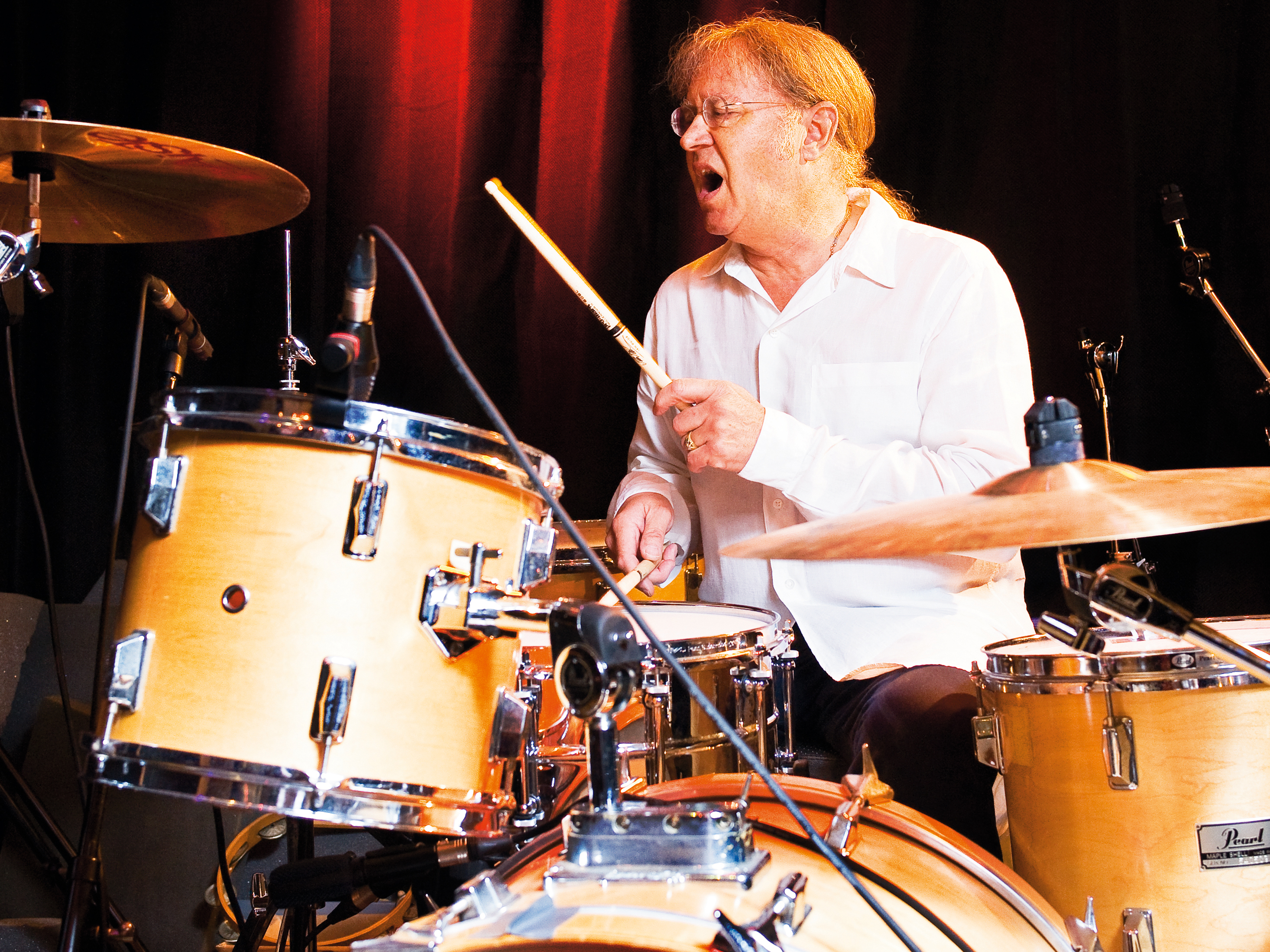
Ian on… being a double-kick innovator
“It’s not that what I did [on 'Fireball', 1971] was particularly difficult, but it is musically perfect for the track. It pushes and pulls the verses and middle-eights and sets up little instrumental bits wonderfully well. It’s one of those things as a kid where you’re not thinking about what you can’t do, you’re thinking that is what I am going to do.”
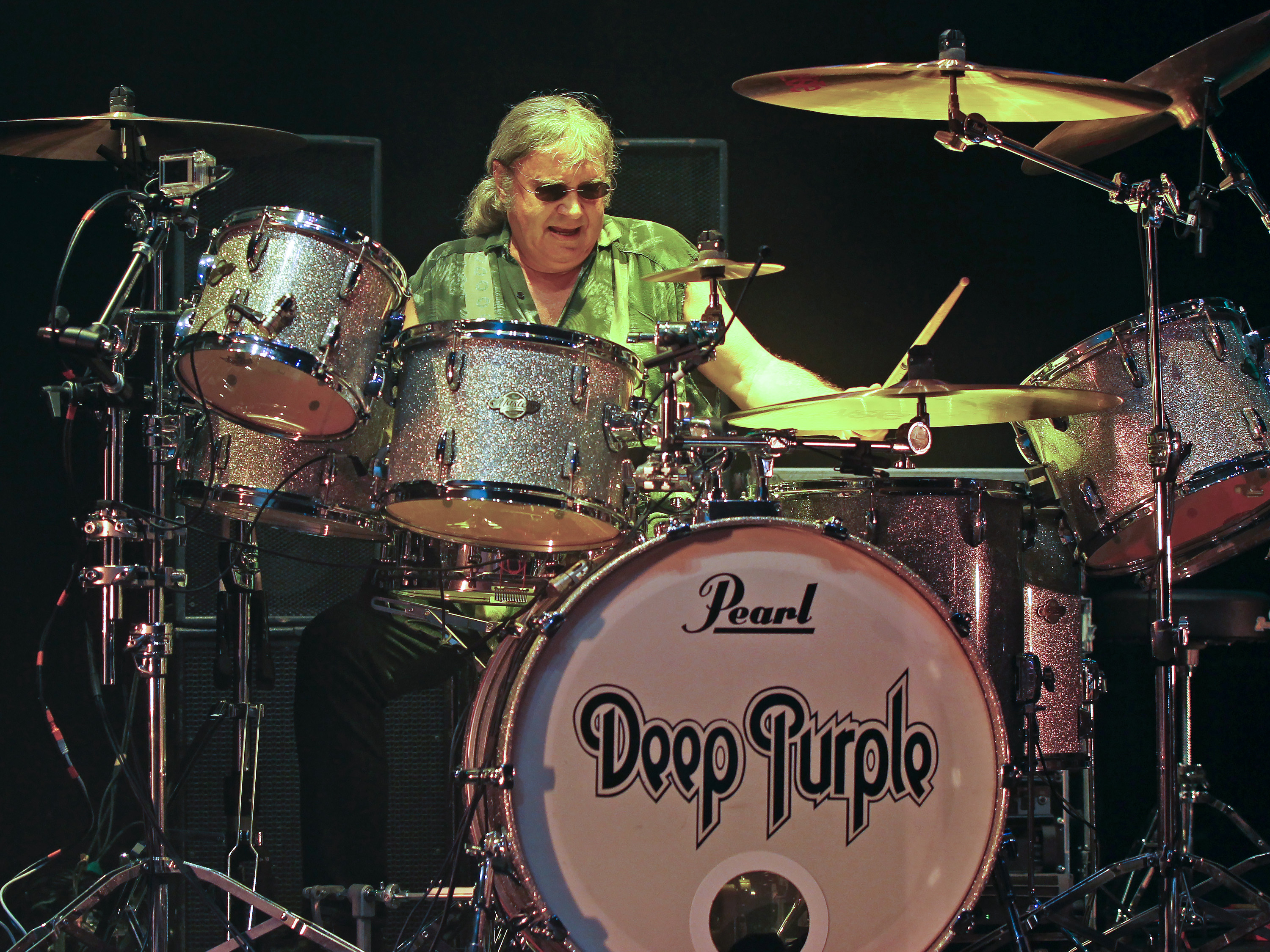
Ian on… his swing
“I hear everything with a swing and even today I have more in common with the rock drummers of the ’50s than even the ’60s and ’70s. My father was a very good piano player and his [jazz] stuff was always on the radio and I love that to this day, the subtleties of great jazz musicians and vocalists.
"A shuffle beat is a heartbeat. That’s why when you hear it played well there’s nothing you can do except move to it, it’s so primordial. When you hear Little Richard, Jerry Lee, Chuck Berry, Elvis – half of the rhythm section are swinging and half aren’t, because they didn’t know what to do. Because you played [jazz swing] while the piano played straight eighths. And that mixture, which shouldn’t have worked, gives it that glorious feel. I still get more pleasure out of Chuck Berry than listening to what rock has become. I just find the rhythms more enticing and erotic, human, not machine-like… Just better.”
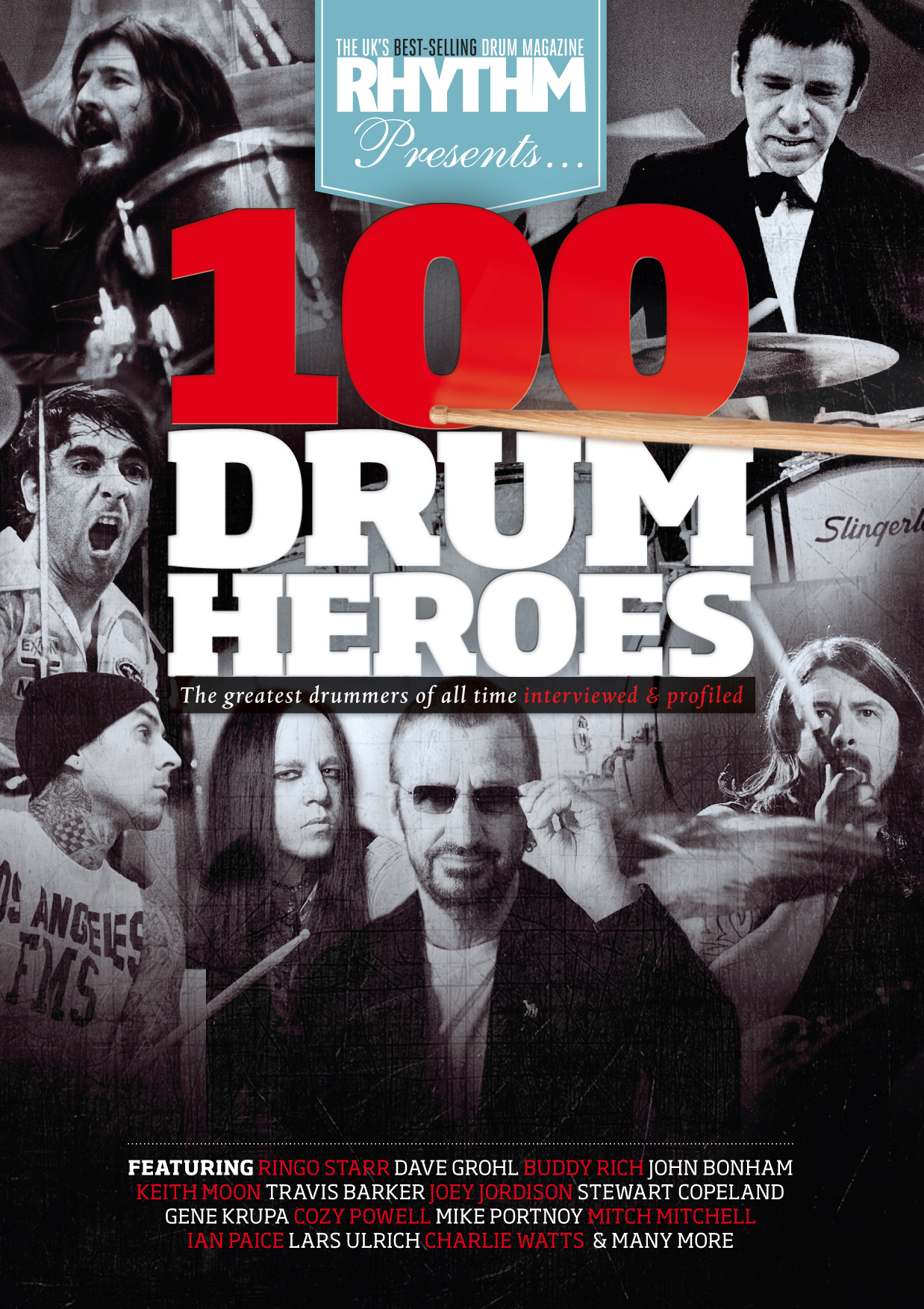
Want more Heroes?
Rhythm Presents 100 Drum Heroes includes exclusive interviews and photos from Rhythm’s29 years as the UK’s biggest drum mag! Drum heroes discuss their music, playing techniques, gear and career highlights. At 200 pages-plus, it's an essential read for fans of drumming and drummers across all genres of music.
100 Drum Heroes is available right now in all good newsagents, online from myfavouritemagazines.comand digitally for iPad from Apple Newsstand!